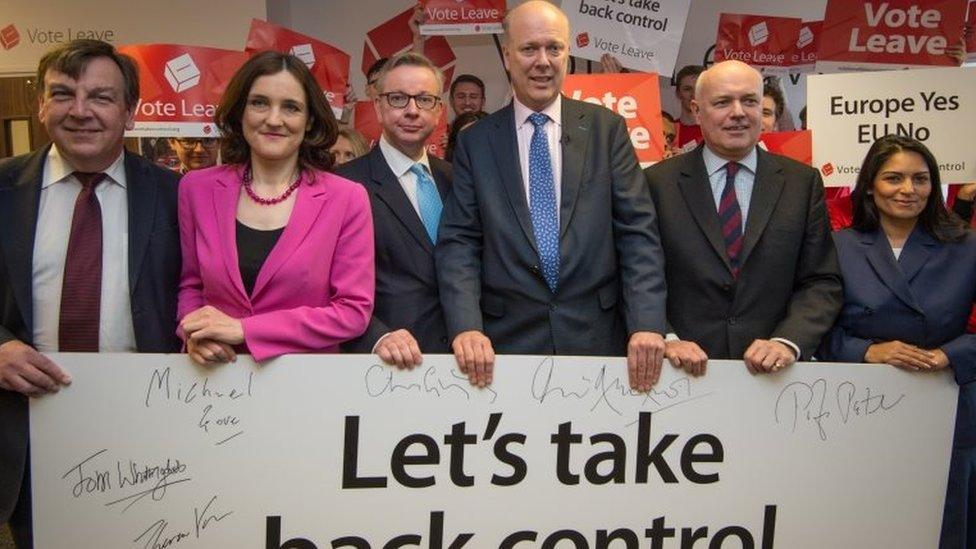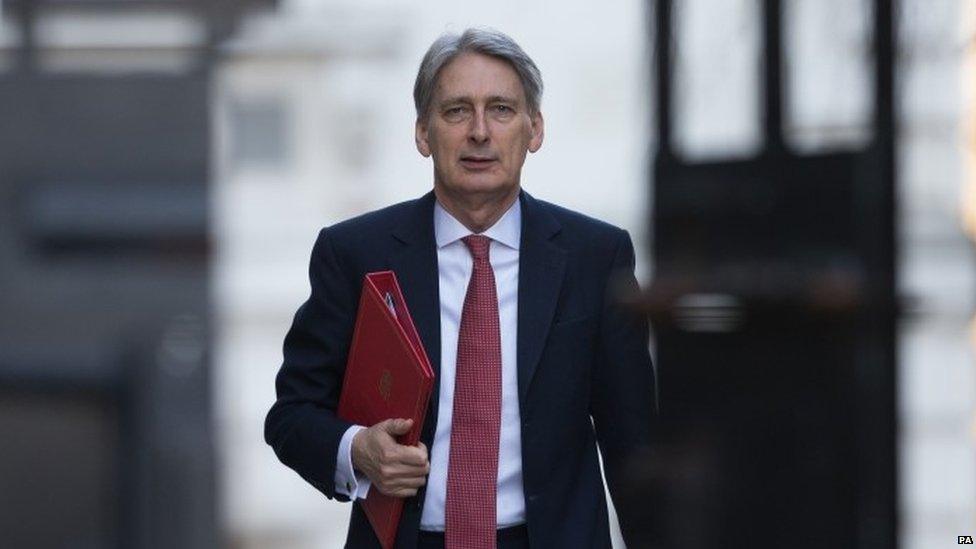EU referendum: Hammond defends rules on access to papers
- Published

Five cabinet ministers and a minister who attends cabinet are campaigning for Brexit
Foreign Secretary Philip Hammond has defended plans to prevent ministers who oppose EU membership from seeing certain government documents.
He said the government, which backs EU membership, was not neutral and those who disagreed could draw on specific policy information from other sources.
MPs are to question the UK's top civil servant after he issued guidance to withhold "referendum-related" material.
One anti-EU minister said retaining documents "can't possibly happen".
How will a divided government work during campaign
The UK's EU vote: All you need to know
Remain v Leave: Where Conservatives stand
The government's official policy is that Britain should remain in the EU - and civil servants are duty-bound to support government policies.
Cabinet Secretary Sir Jeremy Heywood's guidance says ministers opposing the official government line should not be given access to government papers on the referendum or Prime Minister David Cameron's EU renegotiations - apart from ones they had already seen.
He has been called to explain this position - which will apply initially until 28 days before the 23 June referendum - to the cross-party Public Administration Committee of MPs next week.
His guidance has prompted claims from leave campaigners that the establishment is lined up against them.

Philip Hammond said the civil service was working for the government

Sir Jeremy Heywood will appear before MPs on Tuesday
But Mr Hammond defended the government's stance on the issue.
He said: "Whitehall civil servants and Whitehall papers are produced in support of the government's position on an issue.
"Now, those ministers who want to argue another case are being allowed to do so but the civil service can't support them in doing that."
"They'll have to find their own external support to do that and the Leave campaign will provide them with that capability."
And Downing Street rejected suggestions there was a blanket ban on access to all EU-related material in the run-up to the vote.
"There is no ban on ministers who support Leave receiving government papers," it said. "Day-to-day EU business will continue to be conducted in the usual way and all ministers will retain access to any papers relevant to their departments.
"It is only papers specifically relating to the EU referendum that they will not receive and that reflects the fact that the government has taken a position and they are choosing to take a different one."
'Dangerous'
The public administration committee, chaired by Bernard Jenkin, who wants to leave the EU, will question whether the guidance could interfere with the business of government.
Work and Pensions Secretary Iain Duncan Smith, one of the five cabinet ministers campaigning for Britain to leave the EU, told the BBC that in his view Sir Jeremy's guidance could not be adhered to, as he needed to know what was going on in his department.
"We are responsible for the department," he told the Andrew Marr show.
"For example, I will have to work on these proposals that came back from the recent negotiations [in Brussels]. If we vote to remain in, we [the Department of Work and Pensions] will have to deliver that."
In an article for the Sunday Telegraph, external he also said that constitutionally, ministers should continue to receive official documents.
And farming minister George Eustice said ministers needed "100% access" to material relating to day-day dealings with the EU.
"It would be very dangerous, I think, for the civil service to get into a position of saying there's a type of minister who can't have access to this information - otherwise what you're really saying is eurosceptic ministers can't be part of the government in future."
- Published23 February 2016

- Published30 December 2020
